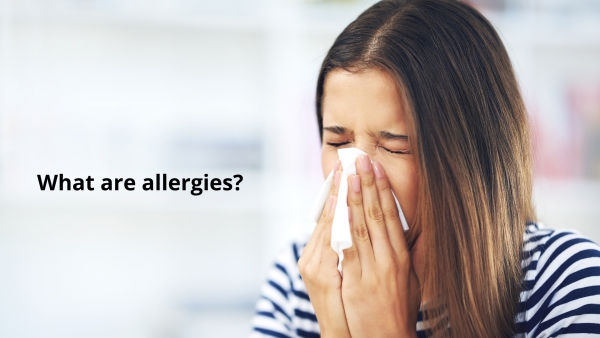What are Allergies?
Allergies are our body’s reaction to harmless substances like pollen, molds, animal dander, latex, certain foods, and insect bites. Our body’s immune system creates antibodies against allergens they find particularly harmful, even though they are not. They can either be mild or life-threatening. Here in the Philippines, 2 out of every 10 Filipinos suffer from this disease. Furthermore, a survey showed that Filipino children have the highest incidence rates of allergies and asthma in Southeast Asia.
Although food allergies and asthma are common knowledge, there are actually different types of allergies around, and they are the following:
- Respiratory/Environmental Allergies – Indoor or outdoor environments can also help trigger and aggravate allergies. When inhaled, there are proteins in the air like dust, molds, and pet dander that when inhaled trigger airway inflammation.
- Food Allergies – There are two types of allergies, namely: IgE-mediated and non-IgE-mediated. IgE-mediated allergies are the most common type of food allergy and are often the cause of anaphylaxis. They occur within minutes of ingestion. Non-IgE mediated allergies, however, are less common since reactions are delayed and an association between the offending food and the symptoms is difficult to make. The common symptoms of non-IgE mediated food allergies include but are not limited to the following: abdominal discomfort, vomiting, and diarrhea. In some cases, constipation or colic may happen.
- Skin Allergies – Skin allergies may be categorized as allergic contact dermatitis, urticaria (hives), and photo allergy. Urticaria and photoallergies often occur within minutes after exposure, while clinical symptoms of allergic dermatitis often occur 1-2 days after exposure to an allergen. Common causes of skin allergies are metal and chemical exposures that penetrate the skin.
- Drug Allergies – Allergies to medicines only happen to a small number of people. Patient history and symptoms, as well as skin testing for drug allergy, are the baseline for diagnosis since most reactions we feel are not allergic, but are the side effects of the properties of a medicine.
Allergic symptoms will depend on the allergen involved, and they can range from mild to severe. In some cases, they can trigger a life-threatening condition called anaphylaxis, a form of medical emergency. It is therefore critical to understand how to recognize these symptoms in order to save a life.
Allergy Symptoms:
- Sneezing
- Itching
- Hives
- Swelling
- Runny nose
- Shortness of breath
- Chest tightness
Anaphylaxis Symptoms:
- Loss of consciousness
- A drop in blood pressure
- Severe shortness of breath
- Skin rash
- Lightheadedness
- Rapid, weak pulse
- Nausea
- Vomiting
When to see a doctor:
If you think you have symptoms that are not relieved by non-prescription allergy medications, it is highly suggested that you go and see your doctor. For severe allergic reactions or anaphylaxis, call 911 to seek emergency medical help. If you have an epinephrine auto-injector, you may give yourself a shot right away and then have your family or friend drive you to the nearest emergency room.
References:
Allergy and Immunology. (n.d.). https://www.rch.org.au/uploadedFiles/Main/Content/allergy/Non%20IgE%20Food%20Allergy.pdf
Allergies - Symptoms and causes. (n.d.). Mayo Clinic. https://www.mayoclinic.org/diseases-conditions/allergies/symptoms-causes/syc-20351497#:~:text=Allergies%20occur%20when%20your%20immune
Cleveland clinic. (2021). Allergies: Symptoms, Treatment & More. Cleveland Clinic. https://my.clevelandclinic.org/health/diseases/8610-allergy-overview
Navarro-Locsin CG, Lim-Jurado M. Aeroallergen sensitization and associated comorbid diseases of an adult Filipino population with allergic rhinitis. Asia Pac Allergy. 2018 Jul;8(3):e25. https://doi.org/10.5415/apallergy.2018.8.e25
Updated, P. (n.d.). Allergy - food allergy, respiratory allergy and skin allergy. Norwegian Institute of Public Health. https://www.fhi.no/en/mp/chronic-diseases/asthma-and-allergy/allergy/#:~:text=Respiratory%20allergies%20are%20caused%20by
Waserman, S., Bégin, P., & Watson, W. (2018). IgE-mediated food allergy. Allergy, Asthma & Clinical Immunology, 14(S2). https://doi.org/10.1186/s13223-018-0284-3


